SPECIAL REPORTS AND PROJECTS
World Bank Group – International Monitory Fund its role in the global land grabs
Published
7 years agoon
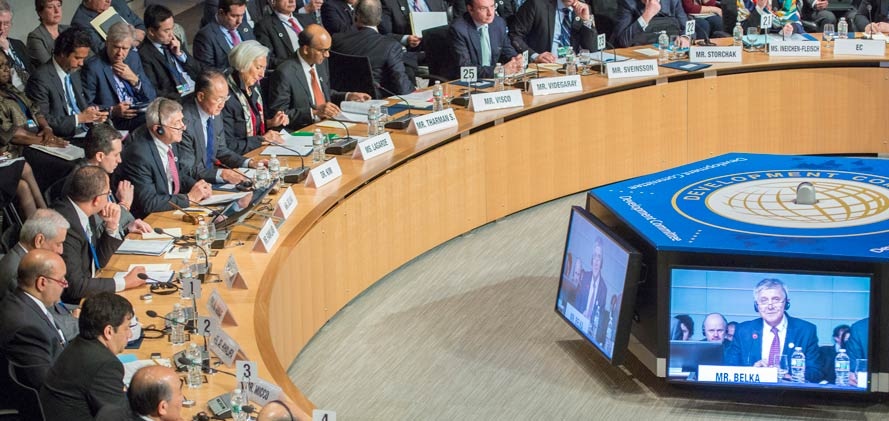
By witnessradio.org/farmlandgrab.org
The World Bank Group between 2006 and 2016, has directly funded at least 14 large land deals spanning at least 900,000 hectares and provided securities financing to over 700,000 more in Africa, Latin America, South and South East Asia.
Most notorious of these are the landgrabs funded by the IFC. In Guinea, IFC has financed resource extraction projects amounting to US$140M in loans, which resulted to the displacement of 150,000 people. Hundreds of thousands more face the risk of cyanide pollution in their water sources. Similarly, IFC has funded mining operations in Myanmar [xvi] that displaced 16,000 farmers and indigenous Karen peoples in 23 communities.
In more than 30 countries – mostly in the Global South – the IFC has been bankrolling landgrabs through financial intermediaries. Private equities and commercial banks fund these lucrative land deals that have adverse social, political, environmental, and humanitarian impacts [xvii].
The IFC has been setting up Climate Funds and ‘green bonds’ to supposedly leverage private sector money towards environmental protection and climate change mitigation. Ironically, almost 70% of these projects are power generation projects such as dams and coal powered power plants in 12 countries including Bangladesh, Cambodia, Ghana, Philippines, and Sierra Leone [xviii]. On the other hand, 46% of area in land grabs are for extractive mining of metals and oil explorations in 15 countries including the Mekong Delta, Egypt, Zambia, Uganda, South Africa and Colombia. In nine countries, large-scale plantations of palm oil, rubber, cotton, and sugarcane are also a huge part of the land grabs in Indonesia, Mozambique, Ethiopia, and Gabon [xix]. “Green” funds supposedly predicated at mitigating climate impacts are grabbing forest lands, burning them and transforming them into plantations!
Despite peoples’ movements and civil society groups’ condemnation of IFC, it has increased agriculture and land-directed “investments” throughout the years [xx]. The World Bank itself lied through its teeth three years ago when it said that only 2% of IFC’s investment in agriculture and forestry had “any component related to land acquisition” [xxi].
More than the rhetoric of achieving food security, landgrabs are motivated by backing financial instruments and assets of the rentiers of financial oligarchs. Since the global financial meltdown of 2008, financial institutions, led by US-based asset-holding corporations and institutions [xxii], are becoming the largest actors behind global land grabs.
While IFC provides the funding including through direct and indirect equity investments, another for-profit arm of the World Bank Group insures landgrabbing investors – the Multilateral Investment Guarantee Agency (MIGA). MIGA provided political risk insurance to several asset-holding corporations and pension funds, including the US$65M it extended to sugar plantation expansion in Mozambique and the US$50 million cover for London-based Chayton Capital in grabbing 20,000 hectares of land in Zambia [xxiii]. MIGA is systematically betting against national interest of host peoples against nationalization, conflict, and acquisition contentions.
While not necessarily exhaustive, much discussion has been done by civil society organizations in the past few years on the role of direct investments and sub-investments of the World Bank Group in landgrabbing. Little have been said on the much larger role it played to facilitate the global land rush – the neoliberal globalization and corporatization of development.
Sowing the seeds of landgrabbing
The IMF-World Bank played a critical historical role in enabling landgrabs in the Global South.
The IMF-World Bank’s neoliberal restructuring of national economies in the late 70’s to early 90s under the structural adjustment program (SAP), and later on the US Treasury-led Washington Consensus, have laid the grounds and sowed the seeds of this massive scale of foreign and foreign-funded landgrabbing.
For decades, the IMF-World Bank Group imposed market colonialism and economic genocide through conditional loans and the IMF shadow program/advisory services as prerequisites of said loans. The triumvirate of market liberalization, deregulation of primary resources and services, and privatization of State assets and facilities forced through so-called adjustment loans have drastically diverted resources away from the domestic economy [xxiv]. On the other hand, it funded export crop production to suit the demand of the innocuous ‘world market’ increasingly dominated by US and EU-based agribusiness monopolies.
Most devastating of such ‘advisory services’ concern land tenure and governance. National legislations on land rights are often developed under the direct scrutiny and advisory services of the Legal Department of the World Bank. The World Bank advocated a market-assisted land reform program predicated on “comparative advantage” of land use, when in practice, it led to reconcentration of lands and evaded intact land monopolies altogether [xxv]. In almost all cases, privatization of agricultural lands is structured in a way that land sales are diverted to debt servicing [xxvi].
In Peru, where more 80,000 hectares of lands were grabbed in the last decade, the 1991 Land Law pushed by the Inter-American Development Bank (IADB) and advisory services of the World Bank required a minimum of 10 hectares as a unit of ownership. This encouraged the centralization of lands to the hands of a few while the parceleros (small farmers) were forced to either sell or give up control of their lands to landlords [xxvii].
In India, the abolition of land ownership ceilings was one of the explicit conditions of World Bank loans.
In sub-Saharan Africa, the World Bank pressured the states in the late 90s to privatize the agricultural lands, which resulted in carbon copy Land Laws that sold the peasant lands – mostly without consent and consultation and often violent — or have leased it out to international agribusinesses for 50-99 years.
Similar laws predicated on a redistributive model have been done in Brazil, Philippines and Colombia where supposedly redistributive land reforms incentivized land monopolies and created conditions for mortgage forfeitures, resulting in a larger landless populace than before. By 1996, the World Bank adopted an aggressive policy of full private ownership of agricultural lands and land market development programs.
The World Bank also facilitated in developing national customary land laws in its “plural land tenure and governance” policy, which privatized the control, if not the ownership, of ancestral lands of Indigenous Peoples and forests, assigning them lease and market value.
The SAP radically eroded the capacity of developing nations to produce staple food domestically. The currency devaluation in combination with the unification of exchange rates and controls have provided an impetus for the growth of commercial farms. This and the deregulation of staple food prices and liberalization of food imports have removed the protection to farmers producing food crops and forced countries to import-substitute crops. In sub-Saharan Africa, privatization of roads and deregulation of oil resulting to high transportation costs crippled farmers selling their food in the local market, which competes with dumped agricultural products from the Northern countries. In other developing countries, irrigation was privatized through World Bank’s policies on water property rights and markets.
Monoculture cropping was also the war cry of the World Bank as heavily subsidized TNCs from the US and EU encroached on privatizing local seed banks, seizing the opportunity of peasant ruin in the countryside. It restructured farming relations from local food production to export-oriented commercial farming.
As a result, the SAP enabled the proliferation of global monopolies that control food production, inputs, and distribution while starving the farmers from the developing world. The establishment of the World Trade Organization (WTO), the World Bank’s brother-in-arms against food sovereignty, has put the denationalization of food systems on overdrive.
Since WTO, profits in the globalized era are sought in increasingly speculative and fraudulent activities [xxviii], and agriculture is specially not exempted. The footprint of speculative activities in the global land rush, especially in 2008 onward, pushed the prices of food staples and led to the food riots and conflicts, which led millions of people in the developing world in a spiral of hunger and poverty [xxix].
In developing countries, the World Bank demanded, the phasing out of agricultural subsidies and the privatization of State seed and fertilizer facilities through the SAPs to “create space for the private sector”. So now, it suffers voluntary amnesia whenever it talks about the “gaps” in agricultural funding supposedly filled in by the private sector, since it created that “gap”.
Maximizing Finance for Development:
Incentivizing Land Grabs and Corporatization of Agricultural Development
The IMF-World Bank in its policy paper “Maximizing Finance in Development in Agriculture Value Chains”, which it hypocritically titled “The Future of Food”, further elaborates the latest installment of IMF-World Bank’s longstanding attack on people’s right to food and food sovereignty, and the offensive advance of greater corporate takeover of agriculture and corporatization of agricultural development.
In the paper, the World Bank describes crowding in funds from the private sector as the all-encompassing key in closing the “gap” in funding for agricultural development. While the paper discusses and hides behind the “alignment” of agricultural development to strategic goals of “poverty reduction” and “providing better jobs and boosting shared prosperity”, it paints a plan to further denationalize food systems and increase financialization in food production, control, and distribution, which divert funds for farmers to incentivizing and de-risking TNC investments and monopoly control.
Advocating Use-Certificates and Access to Rental and Land Markets in lieu of right to land. In continuing its role as an enabler of landgrabbing and further absolving itself of culpability, the paper points out that “weak government policies on land tenure and governance” [xxx] cause risks of landgrabs. In the same breath, the IMF-World Bank calls for national policy reforms advocating more secure use-certificates to minimize the risk of agricultural investments for financial actors. This is doublespeak for the further erosion of the already denied rights of farmers and Indigenous Peoples to land and resources.
While it laments that only 10% of lands in sub-Saharan Africa are registered, it advocates the Ethiopian use-certification land reform that led to the land grabbing of between 2.5 to 2.71 million hectares of land in Ethiopia, which is up to 58.2% of total land area suitable and available for agricultural production, between 1992 and 2010 alone. This comes to no one’s surprise as IFC enabled a 110,000-hectare plantation landgrab in Ethiopia last 2010, where it provided US$150 million loan to ICICI Bank, the landgrabber Karuturi Global’s investor. The IMF-WB continues its efforts in eroding policies on peoples’ right to land through the Land Governance Assessment Framework.
Guarantee, award, incentivize TNCs and monopolies while sponsoring neglect of farmers and domestic food production. The paper promotes the rollback of any State support for farmers and national food production. It calls for a “shift in public policies from direct agricultural support towards improving private sector access to risk management instruments for agriculture”. This shift means indiscriminate phasing out of subsidies to farmers, privatization of state assets related to food production, and the “decoupling of subsidies” away from staple foods as these “crowd out” private sector participation. Moreover, it also calls for an exit of State banks and state capital in funding, lending, and insuring small farmer and staple food production to “create spaces” for commercial banks and international private financing.
These deregulation policies in agriculture coupled with further liberalization, redolent of the disastrous SAPs, will further cripple national capacity to produce food and mitigate world food price spikes. As it is, public spending in agriculture in the global south is on a four-decade long decline [xxxi] in relative terms. In fact, in the south of Sahara, where more than 80% of people depend on agriculture, public spending declined by 25% in the last three decades [xxxii]. A more significant decline was also noted in the Latin America and the Caribbean. Financing takes up an increasing amount of public spending in agriculture, while less and less in direct subsidies to farmers [xxxiii]. A World Bank review attributes this shift to “an era of policy reform” towards market liberalization [xxxiv].
On the other hand, the World Bank has no qualms in subsidizing the entry and entrenchments of agribusiness monopolies in the Global South. In 2009, IFC gave a US$75-million equity infusion to the US$625-million investment vehicle Altima One World Agriculture Fund. The Altima Fund owns majority shares of the El Tejar, the soybean monopoly in Argentina. This then enabled El Tajar to position itself, through more than 200,000 hectares in land grabs, as the largest farm operator in Argentina, Bolivia, Uruguay, and Brazil [xxxv].
Rising prices and trade liberalization also catalyze land grabs. In Cambodia, for example, there is a major uptick in land grabbing due to the “Everything but Arms Treaty” that was signed with the EU. Under the treaty, Cambodia can export sugar duty free.
The paper also prescribes Public-Private-Partnerships (PPP) “wherever possible”, a project funding model worse than privatization. PPPs in agriculture lead to user fees in irrigation and rural infrastructure, opening up land, water extraction, genetic and natural resources to the private sector exploitation; changing national seed laws; lifting plant variety protection, even accommodating the propagation of questionable crops such as those genetically modified; giving up national R&D to the control of agribusiness TNCs and allowing their techno-fixes to low productivity; and changing concepts of land rights and agrarian reform, among others.
In stark contrast to the prescribed neglect to farmers, the paper advocates the diversion of the meager funds to shielding agribusinesses from risks of nationalization, expropriation, disputes, conflict and political risks, even calamities – for countries to bet against their farmers and agricultural workers!
As if not enough, the paper advocates a private sector-led and -centered diagnostic systems in agricultural development – adding control over “assessment framework” and “diagnosis” to the arsenal of corporate power. As it is, the “private sector” is simultaneously the plaintiff, the perpetrator, the lawmaker, the lawyer, and the judge in disputes. Of the 855 known ISDS [1]cases, where 542 were filed in the World Bank’s international investment dispute settlement ICSID [2], 61% were decided in favor of the investor and only 39% in favor of the state[3] [xxxvi]. In fact, the IFC and the World Bank have consistently invoked its “absolute immunity” in class action lawsuits directed against them over the past few years[xxxvii].
Unsurprisingly, the paper advocates as well for the “harmonization” of seed laws. These laws, as made clear by farmers in Africa, are violating the rights of people to seed and seed biodiversity — supporting policies for privatization of seeds and criminalization of seed saving and strengthening the position of international seed monopolies like Bayer-Monsanto and DuPont.
Further deepening of financialization of food systems and increasing the speculative nature of land and food markets.Financialization has been pushing prices of food and fueling the landgrabs since 2008. In fact, from 2004, IFC has funded US$4.55 billion in loans and grants to financial intermediaries linked to over hundreds of projects that resulted in landgrabbing, displacement of peoples, ruin of livelihood, and environmental degradation [xxxviii]. These financial intermediaries, which include banks, insurance companies, microfinance institutions, and private equity funds, received the biggest share of World Bank’s investments through the IFC [xxxix].
While the World Bank advocates for the “deepening of financial markets in developing countries” and in agriculture, it leaves out in convenience the fact that global agricultural markets today are already riddled and closely entangled with increasingly speculative funds, bonds, derivatives, and other financial instruments like the commodity index fund which drives agricultural inputs and product prices upward – a double burden for farmers.
As already mentioned above, the IFC has also been setting up of green funds and climate change mitigation funds that has predated on forests and Indigenous Peoples’ rights to land and self-determination. The IFC boasts that its investments in climate financing have reached US$18.3 billion and mobilized $11 billion in private sector funding for climate since 2005 [xl] — including 109 green bonds.
Since 2011, IFC has invested a total of US$246.5 million [xli] in RCBC, a Philippine-based bank, including at least US$22.5 million in IFC’s climate loans [xlii]. RCBC has been funding the construction and operation of 20 coalfired power plants in the Philippines, which have displaced and affected at least 28 communities of farmers and fishers.
Killings amid poverty and landlessness
Growing landlessness and soaring rural poverty are the clear and inevitable effects of IMF-WB neoliberal policies. IMF-WB’s decades of policies of auctioning off agricultural lands to land markets and their promotion of market-led land reforms and speculation have marginalized large portions of already impoverished farmers in the global south in favor of local elites and international investors. [xliii]
Commodification of agricultural and forestlands has led to greater concentration of land in the hands of local elites while systematically excluding small farmers [xliv]. Large haciendas and latifundia in Asia and in Latin America remain intact and have grown and evolved over the last century.
In most of the developing countries today, 95% of farms being tilled by small farmers are below 5 hectares. However, these farms occupy only 66 to 75% of the total arable lands[xlv]. This means that the remaining 5% of farms are large landholdings where 25 to 33% of the total arable lands are concentrated. In the Middle East and North African region, 80% of farms occupy only 20% of total agricultural area. While in Latin America, the largest 10% of farms hold 60% of total agricultural area [xlvi]. In the Philippines, 57% of farms cover only 12% of total agricultural lands [xlvii].
The intense concentration of agricultural lands in the hands of landlords and corporations indicate how massive landlessness is among farmers and agricultural workers. The total of 12 million farmers displaced by reported land grabs in the last decade add to the already high number of landless in the global south. In India alone, 41.63% of rural households are landless, which translate to 307 million people [xlviii].
In addition, neoliberal schemes such as contract growing and other lease-type agreements wrest the control of farms from small farmers and hand it over to agribusiness ventures. Thus, even the landed small farmers end up as agricultural workers in their own land.
Land grabs in the past few years are also becoming more violent and heavily militarized as more and more communities resist forced displacement. The IMF-WB itself is complicit in the piling bodies of farmers and land rights activists in the Global South.
For example, in Honduras, one of the deadliest countries on earth for farmers and land rights activists, the IFC gave a loan of US$15 million to the Dinant Group in 2009. The Dinant Group, owned by the wealthiest man in the country and one of the biggest landlords in the Aguan Valley, killed more than 36 farmers in 2011, in the wake of its way to being Honduras’s biggest oil palm plantation operator – bagging 60% of palm oil exports in the country [xlix]. The World Bank has profited off farmers’ murders.
Agribusiness and mining landgrabs total the greatest number of extrajudicial killings, according to reports. Not only are small farmers neglected in policy making; the human rights of peasants and land rights defenders are also disregarded and even attacked by the state. In fact, in the 207 reported global killings of farmers and land rights defenders in 2017, at least 53 were state-sponsored.
Towards peoples’ right to food and food sovereignty
But amid all these attacks, the farmers, Indigenous Peoples, and other rural peoples’ resistance against landgrabbing is also gaining ground. In fact, there are numerous cases of landgrabs that were delayed, thwarted, and even denied because of the communities’ determined assertion of their right to land and resources. While there are many factors in the relative slowdown of global landgrabs over the last three years [l], rural peoples’ determination to expose, directly confront and challenge the land grabbers has made a significant impact.
In the Philippines, for instance, farmers and Indigenous Peoples are standing their ground in lands that are being grabbed for oil palm plantations, for mining and coal-fired power plants, and for ‘green cities’, among others. In the province of Misamis Oriental in Mindanao, Indigenous Higaonan people continue to keep at bay the state-backed ABERDI [4] company from displacing them in 530 hectares of ancestral lands earmarked for oil palm plantation expansion. Retaking lands from landgrabbers and centuries-old haciendas through what we call “bungkalan” or land occupation and collective cultivation also marks the resistance of farmers and Indigenous Peoples in various provinces of the Philippines like Negros, Bohol, Bukidnon, Tarlac, Batangas, Samar, Sorsogon, and Davao[li].
In West Bengal, India, Singur peasants deployed a combination of legal, on-ground, and political actions against manufacturing giant Tata Motors over 500 hectares of agricultural lands. The historic 2016 decision of the West Bengali court in favor of the farmers and the unwavering resolve of the Singur peasants have swept the region. It catalyzed a wave of peasant struggles and prompted land reform amendments in the region.
In Brazil, land occupation movements led by the Liga de Campesinos Pobres in Pau D’arco, Para, North of Brazil and in the Beirada Farm in Manga remain a bulwark of peasant power against mining and agribusiness landgrabbers. Despite more than 40 farmers and activists already killed and hundreds more arrested in the defense of their lands last year alone, the Brazilian farmers continue to thwart landgrabs and persist in reclaiming their lands. In Santa Elina, poor and landless farmers took over the old Hacienda Sta. Elina and are now collectively cultivating the “blood stained” lands they have for decades been fighting for.
Today as the IMF-World Bank and their client countries unite to find new ways to plunder our lands, exploit and oppress our rural peoples, and take away the peoples’ rights, we raise our clenched fists as one and reaffirm our resolve to defend our land and resources, to stop further corporate takeover of development, and to reclaim our rights to land and food sovereignty.
Stop Land Grabs! Reclaim our rights and future!
Fight for Genuine Agrarian Reform!
Stop killing farmers!
Assert our right to food, land, and food sovereignty!
Junk IMF-World Bank’s neoliberal agenda!
Shut Down the IMF-World Bank!
Rafael Mariano is the Chair Emeritus of Kilusang Magbubukid ng Pillipinas. He was the former Secretary of the Philippine Government’s Department of Agrarian Reform (DAR).
Notes
https://peoplesglobalconference.weebly.com/resource1.html#_ftnref1” style=”font-weight: 600; trans
Related posts:

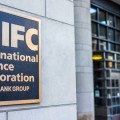 Supreme Court rules that World Bank Group can be sued in US Courts in historic decision
Supreme Court rules that World Bank Group can be sued in US Courts in historic decision
 African Development Bank decides not to fund Kenya coal project
African Development Bank decides not to fund Kenya coal project
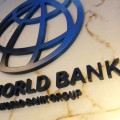 World Bank: End the Enabling Business of Agriculture Program and its Land Indicator or the poor will perish
World Bank: End the Enabling Business of Agriculture Program and its Land Indicator or the poor will perish
 World Bank’s new scheme to privatize land in the developing world exposed
World Bank’s new scheme to privatize land in the developing world exposed
You may like
-


Private prosecution: Army General, police commander, presidential representative and others to be charged with over seven offenses committed while illegally evicting locals to give way to EACOP.
-


Six cattlemen opposed to the Tilenga oil project-related forced land eviction have been granted bail but will remain in prison…
-
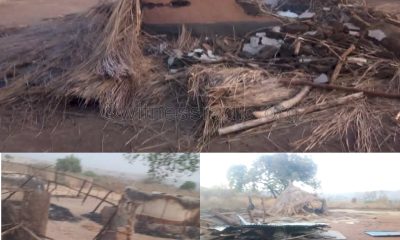

The district security committee continues to defy gov’t’s directive to return locals to their land 48 days later.
-
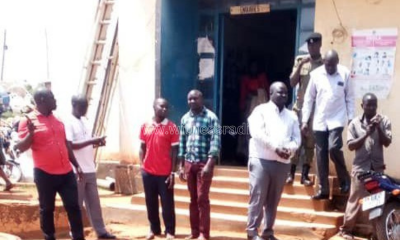

State House Anti-Corruption Unit nets a surveyor implicated in Mubende district land-grabs
-
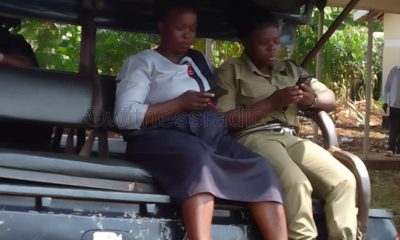

Kiboga district senior lands officer is arrested and detained over land fraud.
-


Community land rights defenders that have been on trial since 2020; are set to return to court this January.
SPECIAL REPORTS AND PROJECTS
‘Food and fossil fuel production causing $5bn of environmental damage an hour’
Published
2 months agoon
December 22, 2025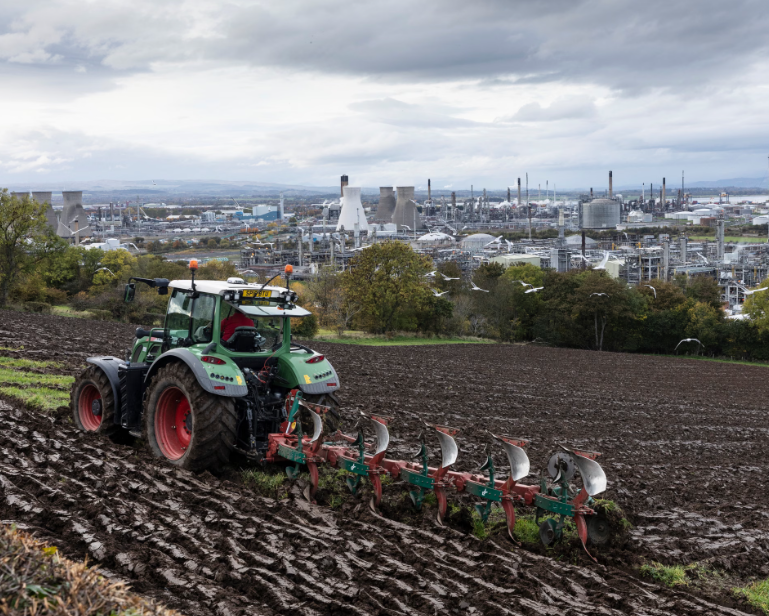
UN GEO report says ending this harm key to global transformation required ‘before collapse becomes inevitable’.
Related posts:

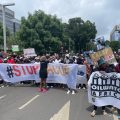 Activists storm TotalEnergies’ office ahead of G20 Summit, demand end to fossil fuel expansion in Africa
Activists storm TotalEnergies’ office ahead of G20 Summit, demand end to fossil fuel expansion in Africa
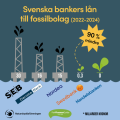 New billion-dollar loans to fossil fuel companies from SEB, Nordea and Danske Bank.
New billion-dollar loans to fossil fuel companies from SEB, Nordea and Danske Bank.
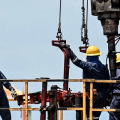 Fossil fuel opponents lobby Africans for support
Fossil fuel opponents lobby Africans for support
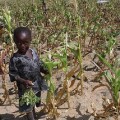 Ecological land grab: food vs fuel vs forests
Ecological land grab: food vs fuel vs forests
SPECIAL REPORTS AND PROJECTS
Britain, Netherlands withdraw $2.2 billion backing for Total-led Mozambique LNG
Published
2 months agoon
December 17, 2025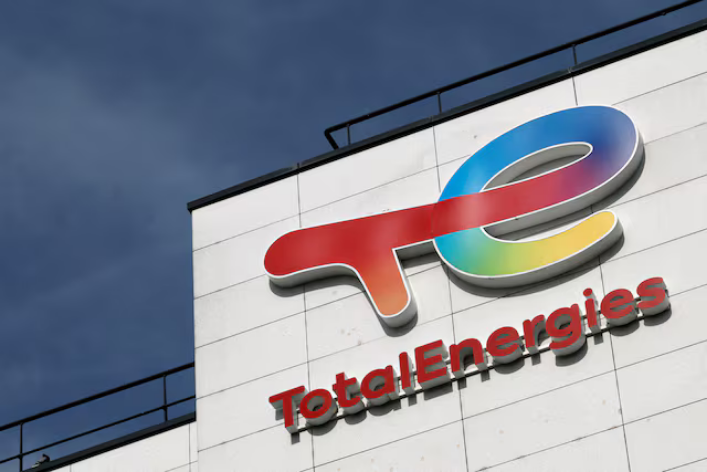
CONSTRUCTION HALTED IN 2021, BUT DUE TO RESTART
PROJECT CAN PROCEED WITHOUT UK, DUTCH FINANCING, TOTAL HAS SAID
CRITICISM FROM ENVIRONMENTAL, HUMAN RIGHTS GROUPS
Related posts:

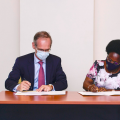 Uganda, Total sign crude oil pipeline deal
Uganda, Total sign crude oil pipeline deal
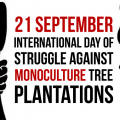 Witness Radio – Uganda, Community members from Mozambique and other organizations around the world say NO to more industrial tree plantations
Witness Radio – Uganda, Community members from Mozambique and other organizations around the world say NO to more industrial tree plantations
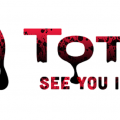 NGOs file suit against Total over Uganda oil project
NGOs file suit against Total over Uganda oil project
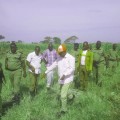 Agribusiness Company with financial support from UK, US and Netherlands is dispossessing thousands.
Agribusiness Company with financial support from UK, US and Netherlands is dispossessing thousands.
SPECIAL REPORTS AND PROJECTS
The secretive cabal of US polluters that is rewriting the EU’s human rights and climate law
Published
2 months agoon
December 5, 2025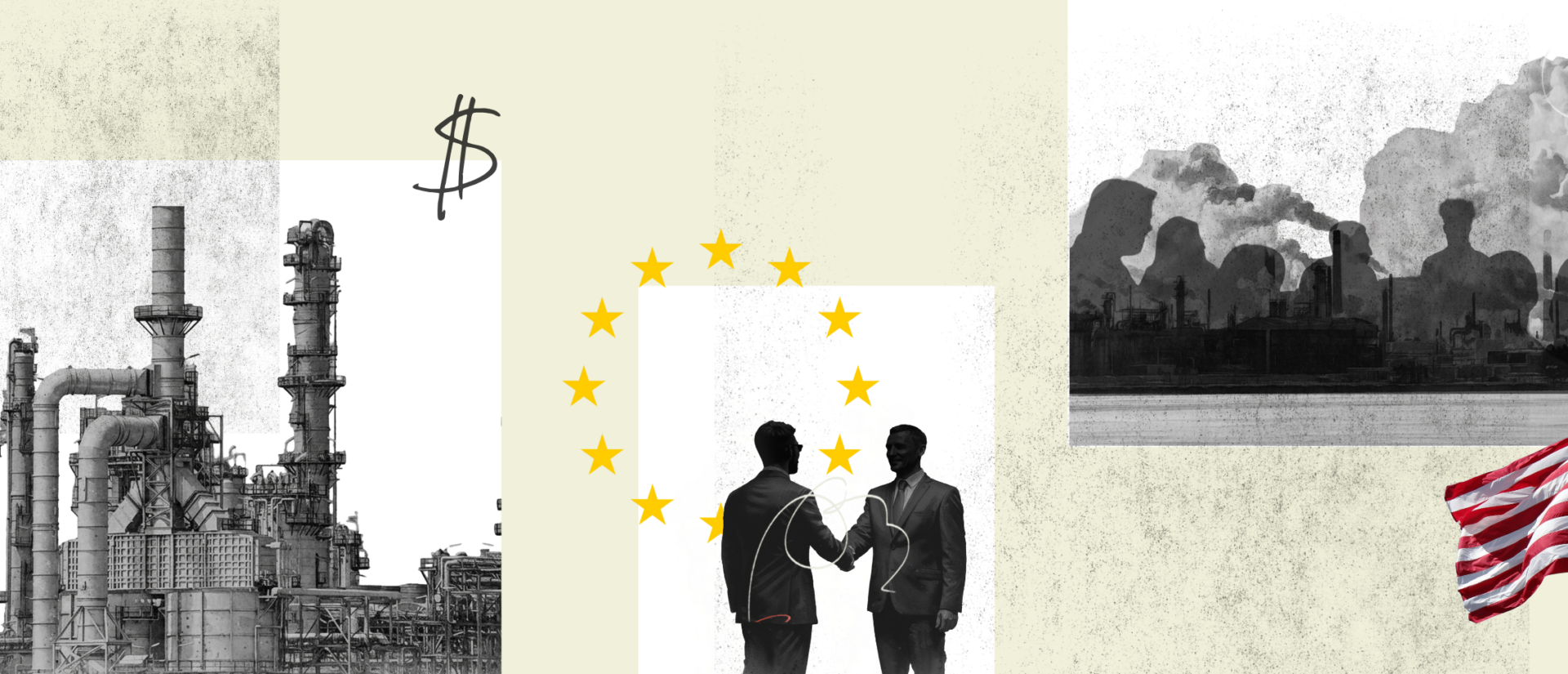
Leaked documents reveal how a secretive alliance of eleven large multinational enterprises has worked to tear down the EU’s flagship human rights and climate law, the Corporate Sustainability Due Diligence Directive (CSDDD). The mostly US-based coalition, which calls itself the Competitiveness Roundtable, has targeted all EU institutions, governments in Europe’s capitals, as well as the Trump administration and other non-EU governments to serve its own interests. With European lawmakers soon moving ahead to completely dilute the CSDDD at the expense of human rights and the climate, this research exposes the fragility of Europe’s democracy.
Key findings
- Leaked documents reveal how a secretive alliance of eleven companies, including Chevron, ExxonMobil, and Koch, Inc., has worked under the guise of a “Competitiveness Roundtable” to get the Corporate Sustainability Due Diligence Directive (CSDDD) either scrapped or massively diluted.
- The companies, most of which are headquartered in the US and operate in the fossil fuel sector, aimed to “divide and conquer in the Council”, sideline “stubborn” European Commission departments, and push the European People’s Party (EPP) in the European Parliament “to side with the right-wing parties as much as possible”.
- Chevron and ExxonMobil were in charge of mobilising pressure against the CSDDD from non-EU countries. The Roundtable companies endeavoured to get the CSDDD high on the agenda of the US-EU trade negotiations and also worked on mobilising other countries against the CSDDD, in order to disguise the US influence.
- Roundtable companies paid the TEHA Group – a think tank – to write a research report and organise an event on EU competitiveness, which echoed the Roundtable’s position and cast doubt on the European Commission’s assessment of the economic impact of the CSDDD.
While Europeans were told that their governments were negotiating a landmark law to hold corporations accountable for human rights abuses and climate damage, a secretive alliance of US fossil fuel giants was working behind the scenes to destroy it. Collaborating under the innocent-sounding name ‘Competitiveness Roundtable’, eleven multinational enterprises have worked closely to eviscerate several EU sustainability laws, including the Corporate Sustainability Due Diligence Directive (CSDDD) and the Corporate Sustainability Reporting Directive (CSRD). This Competitiveness Roundtable may be unknown, but its members are a who’s-who of polluting, mainly US, multinationals, including Chevron, ExxonMobil, and Dow. The group seems to have run rings around all branches of the EU and the Trump administration to get what they want: scrapping, or at least hugely diluting, the CSDDD.
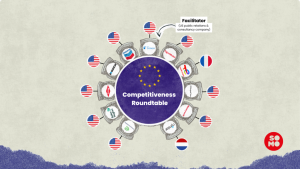
Leaked documents obtained by SOMO reveal how, under the pretext of the now-near-magical concept of ‘competitiveness’, these companies plotted to hijack democratically adopted EU laws and strip them of all meaningful provisions, including those on climate transition plans, civil liability, and the scope of supply chains. EU officials appear not to have known who they were up against. But the documents obtained by SOMO show a high level of organisation and strategising with a clear facilitator: Teneo, a US public relations and consultancy company.
The documents indicate that many of the companies involved wanted to stay hidden from view. After all, if it were widely known that a secretive group of mostly American fossil fuel companies like Chevron, ExxonMobil, and Koch, Inc. was working as a coordinated organisation to dilute an EU climate and human rights law, that might raise questions and serious concern among the public and the policymakers they were targeting. Many of the companies in the Roundtable have never publicly spoken out against the CSDDD.
Big Oil’s ‘Competitiveness Roundtable’
The Competitiveness Roundtable is dominated by fossil fuel companies, including three Big Oil companies (ExxonMobil, Chevron, TotalEnergies) and three other companies with activities in the oil and gas sector (Koch, Inc., Honeywell, and Baker Hughes). Other members are Nyrstar (minerals and metals, a subsidiary of Trafigura Group); Dow, Inc. (chemicals); Enterprise Mobility (car rentals); and JPMorgan Chase (finance).
Teneo, the Roundtable’s coordinator, has a track record(opens in new window) of working with fossil fuel companies, including Chevron, Shell, and Trafigura, and was hired by the government of Azerbaijan to handle public relations(opens in new window) when it hosted the COP29 climate conference.
In February 2025, the European Commission published the Omnibus I proposal(opens in new window), which aims to “simplify” several EU sustainability laws, including the CSDDD. The documents obtained by SOMO reveal that the Roundtable companies, which have been meeting weekly since at least March 2025, worked on deep interventions within each of the three EU institutions to get the Omnibus I package to align exactly with their views. The EU institutions are expected to reach a final agreement on Omnibus I by the end of 2025.
The documents reveal that the Roundtable companies’ activities in the Parliament are far more significant than what is visible in the EU Transparency Register(opens in new window). Eight of the Roundtable’s lobbying meetings during the Strasbourg plenary sessions of May and June 2025, listed in the Transparency Register, show Teneo as the only attendee, thereby failing to disclose the names of other Roundtable companies that participated in these meetings. Another three meetings the Roundtable held were not found in the EU Transparency Register(opens in new window) at all.
“Divide and conquer” the Council
In the European Council, the Roundtable plotted to “divide and conquer” EU governments to get the climate article in the CSDDD deleted. In June 2025, during the final weeks of negotiations in the Council on the Omnibus I proposal, the Roundtable discussed lobbying EU government leaders to “intervene politically” to ensure its priorities were included in the Council’s negotiation mandate. Subsequently, German Chancellor Merz and French President Macron reportedly(opens in new window) personally intervened(opens in new window) in the Council’s political process, leading to a dramatic dilution(opens in new window) of the texts(opens in new window) negotiated in the months before the intervention. Several of the changes made to the texts strongly align with the Roundtable’s demands, including delaying and substantially weakening the climate obligations, scrapping EU civil liability provisions, and limiting the responsibility of companies to take responsibility for their supply chains (the ‘Tier 1’ restriction).

Competitiveness Roundtable meeting document, 11 July 2025.
Additionally, the documents reveal that the Roundtable is still aiming to drum up a “blocking minority” to overturn the Council’s negotiation mandate during the trilogue negotiations, which started in November 2025. By “tak[ing] advantage of the ‘weak’ Council negotiating mandate” and disagreements between EU Member States on “contentious articles”, the Competitiveness Roundtable companies hope to force the Danish Council presidency to give up on including any form of climate obligations in the CSDDD – despite EU Member States’ agreement on this in the June 2025 Council mandate(opens in new window) .
To implement the divide-and-conquer strategy, the Roundtable assigned specific companies to “establish rapporteurships” with different EU governments. TotalEnergies would target the French, Belgian, and Danish governments, and ExxonMobil would target Germany, Hungary, the Czech Republic, and Romania.
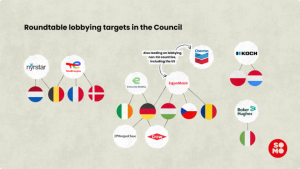
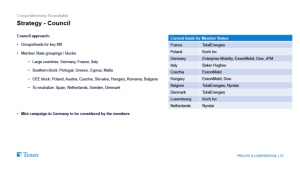
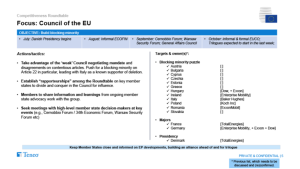
Circumventing “stubborn” European Commission departments
The Roundtable also discussed working on “circumvent[ing]” two “stubborn” European Commission departments involved in the Omnibus political process, DG JUST and DG FISMA, which, in their view, were “unlikely to be willing to see our side of the story”. According to the documents, DG JUST opposed deleting the climate article and restricting the Directive’s scope to only very large enterprises. The Roundtable aimed to diminish the role of these departments by pressuring President Von der Leyen and Commissioners McGrath (DG JUST) and Albuquerque (DG FISMA) by “organising letters from Irish and German business groups” and using an event held by the European Roundtable for Industry to “target” Von der Leyen and McGrath.
Read full report: Somo.nl
Source: Somo
Related posts:

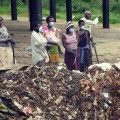 Victims of human rights violations in Uganda still waiting for redress
Victims of human rights violations in Uganda still waiting for redress
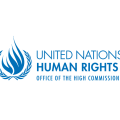 UN Human Rights Chief urges EU leaders to approve key business and human rights legislation
UN Human Rights Chief urges EU leaders to approve key business and human rights legislation
 Business, UN, Govt & Civil Society urge EU to protect sustainability due diligence framework
Business, UN, Govt & Civil Society urge EU to protect sustainability due diligence framework
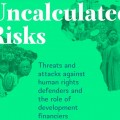 Development financiers fuel human rights abuses – New Report
Development financiers fuel human rights abuses – New Report

Indigenous communities’ complaint against World Bank-linked Nepal Cable Car Project declared eligible for investigation.

The Witness Radio and Seed Savers Network Joint Radio program boosts Farmers’ knowledge of seed and food sovereignty.

Close to six years on, Pangero Chiefdom subjects still linger in pain after the government army’s forceful takeover of their ancestral land.

Indigenous communities in Eastern Nepal accuse the World Bank’s Linked Cable Car Project of rights violations.

Will Uganda’s next government break the land-grabbing cycle?

Swedish pension fund drops TotalEnergies amid rising EACOP risks

Women environmental rights defenders in Africa are at the most significant risk of threats and attacks – ALLIED New report

Uganda moves toward a Bamboo Policy to boost environmental conservation and green growth.

Innovative Finance from Canada projects positive impact on local communities.
Over 5000 Indigenous Communities evicted in Kiryandongo District
Petition To Land Inquiry Commission Over Human Rights In Kiryandongo District
Invisible victims of Uganda Land Grabs
Resource Center
- Land And Environment Rights In Uganda Experiences From Karamoja And Mid Western Sub Regions
- REPARATORY AND CLIMATE JUSTICE MUST BE AT THE CORE OF COP30, SAY GLOBAL LEADERS AND MOVEMENTS
- LAND GRABS AT GUNPOINT REPORT IN KIRYANDONGO DISTRICT
- THOSE OIL LIARS! THEY DESTROYED MY BUSINESS!
- RESEARCH BRIEF -TOURISM POTENTIAL OF GREATER MASAKA -MARCH 2025
- The Mouila Declaration of the Informal Alliance against the Expansion of Industrial Monocultures
- FORCED LAND EVICTIONS IN UGANDA TRENDS RIGHTS OF DEFENDERS IMPACT AND CALL FOR ACTION
- 12 KEY DEMANDS FROM CSOS TO WORLD LEADERS AT THE OPENING OF COP16 IN SAUDI ARABIA
Legal Framework
READ BY CATEGORY
Newsletter
Trending
-

 MEDIA FOR CHANGE NETWORK2 weeks ago
MEDIA FOR CHANGE NETWORK2 weeks agoWomen environmental rights defenders in Africa are at the most significant risk of threats and attacks – ALLIED New report
-

 FARM NEWS2 weeks ago
FARM NEWS2 weeks ago200 farmers demonstrate at parliament, worried about new seed monopoly
-

 MEDIA FOR CHANGE NETWORK1 week ago
MEDIA FOR CHANGE NETWORK1 week agoEvicted from their land to host Refugees: A case of Uganda’s Kyangwali refugee settlement expansion, which left host communities landless.
-

 MEDIA FOR CHANGE NETWORK1 week ago
MEDIA FOR CHANGE NETWORK1 week agoWitness Radio and Seed Savers Network are partnering to produce radio content to save indigenous seeds in Africa.
-

 MEDIA FOR CHANGE NETWORK4 days ago
MEDIA FOR CHANGE NETWORK4 days agoIndigenous communities in Eastern Nepal accuse the World Bank’s Linked Cable Car Project of rights violations.
-

 MEDIA FOR CHANGE NETWORK6 days ago
MEDIA FOR CHANGE NETWORK6 days agoWhy govt is launching a comprehensive digital land registry
-

 MEDIA FOR CHANGE NETWORK3 days ago
MEDIA FOR CHANGE NETWORK3 days agoClose to six years on, Pangero Chiefdom subjects still linger in pain after the government army’s forceful takeover of their ancestral land.
-

 MEDIA FOR CHANGE NETWORK2 days ago
MEDIA FOR CHANGE NETWORK2 days agoThe Witness Radio and Seed Savers Network Joint Radio program boosts Farmers’ knowledge of seed and food sovereignty.
